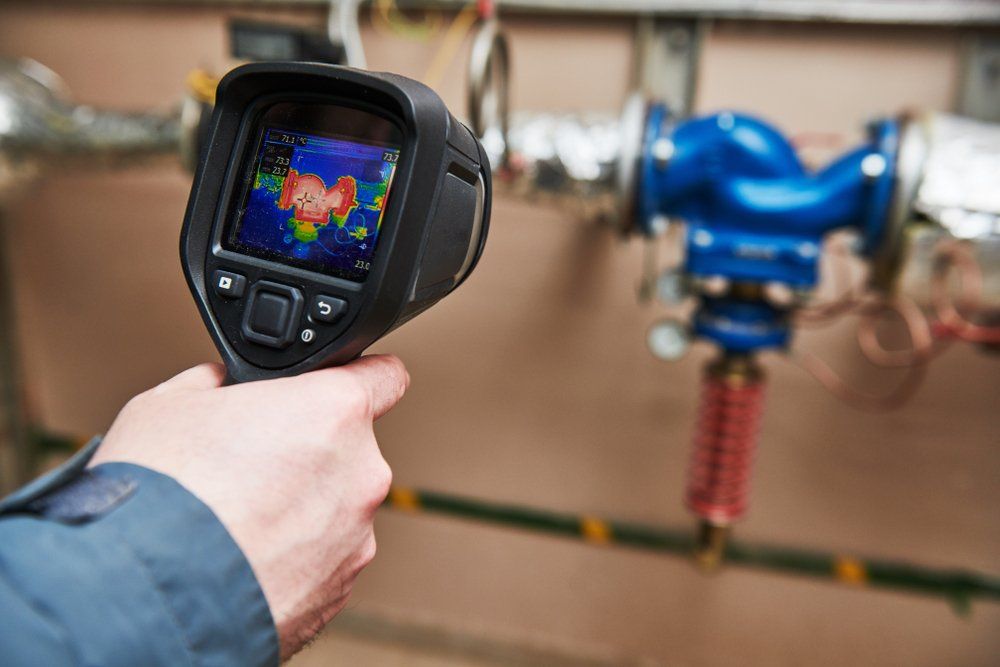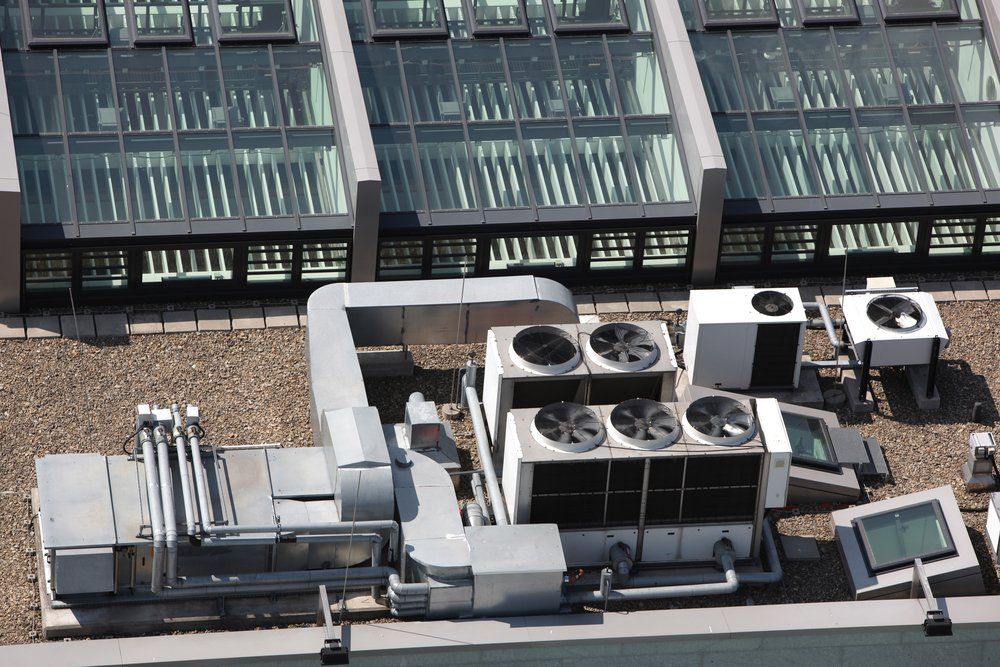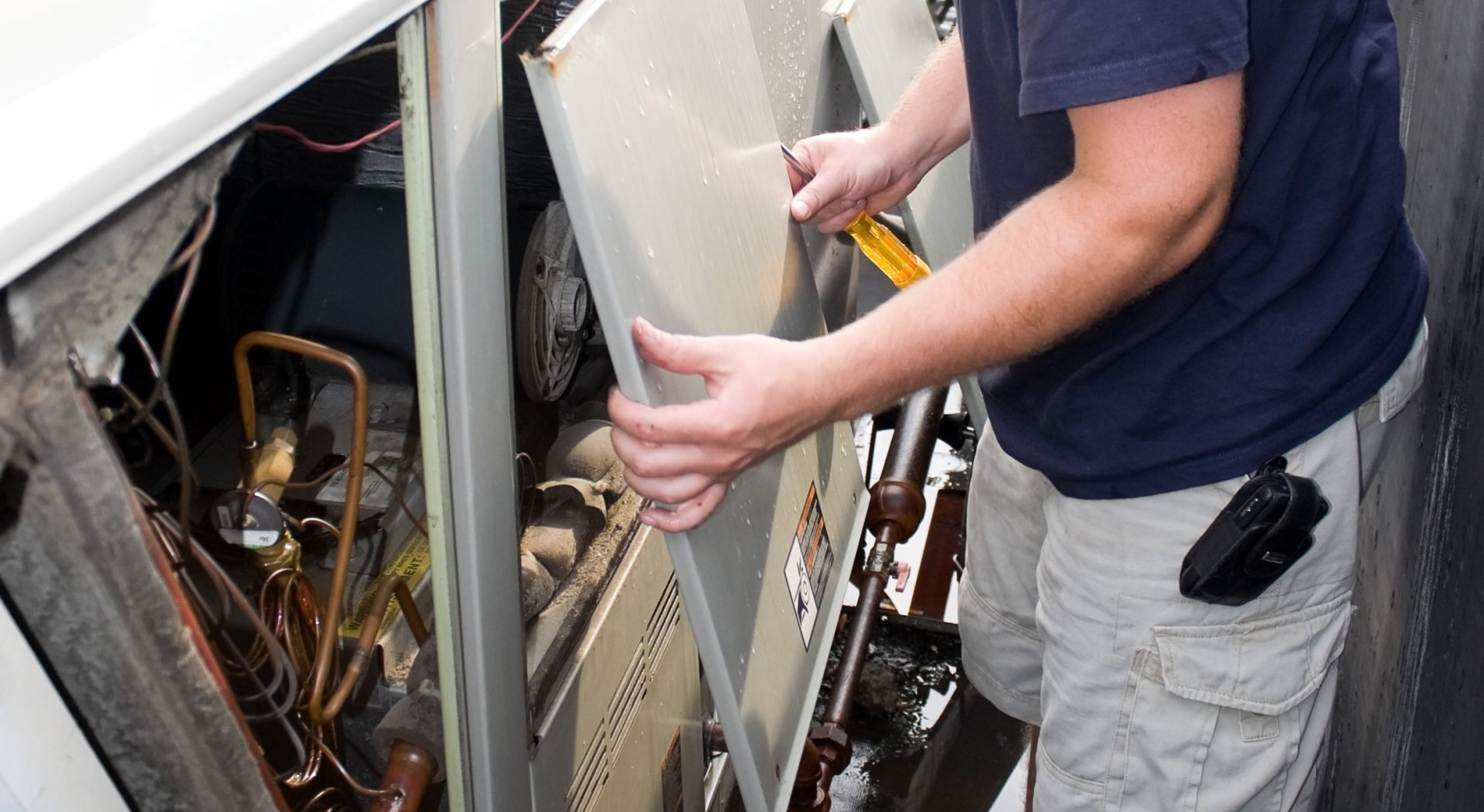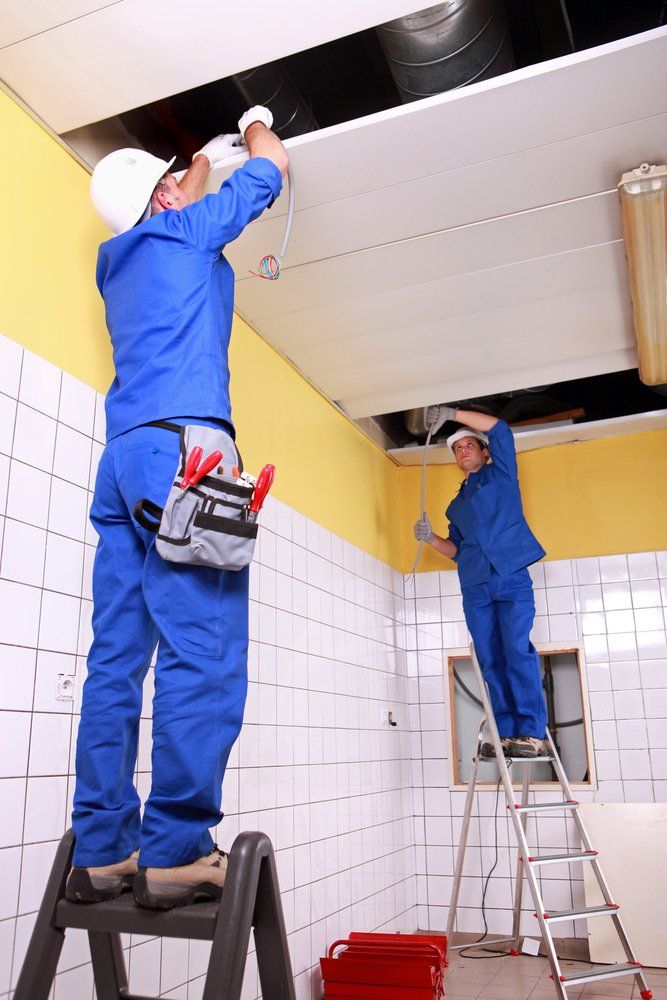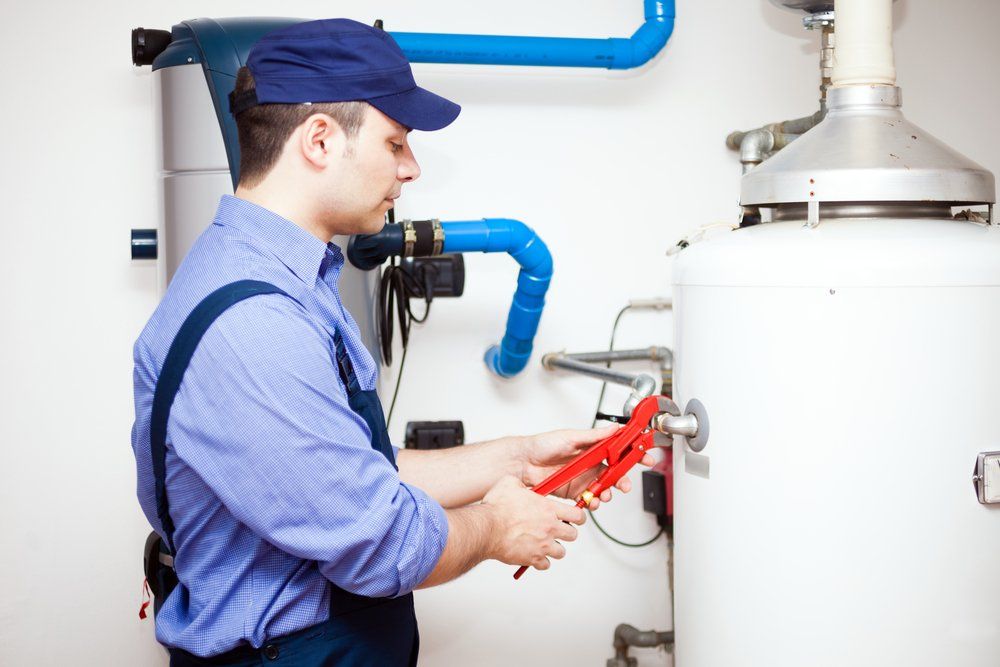Why Has My Air-Conditioning Line Frozen And How Do I Fix It?
The AC system in your home is one of the most important parts. When it's not working properly, you need to find out why so that we can get everything back on track!
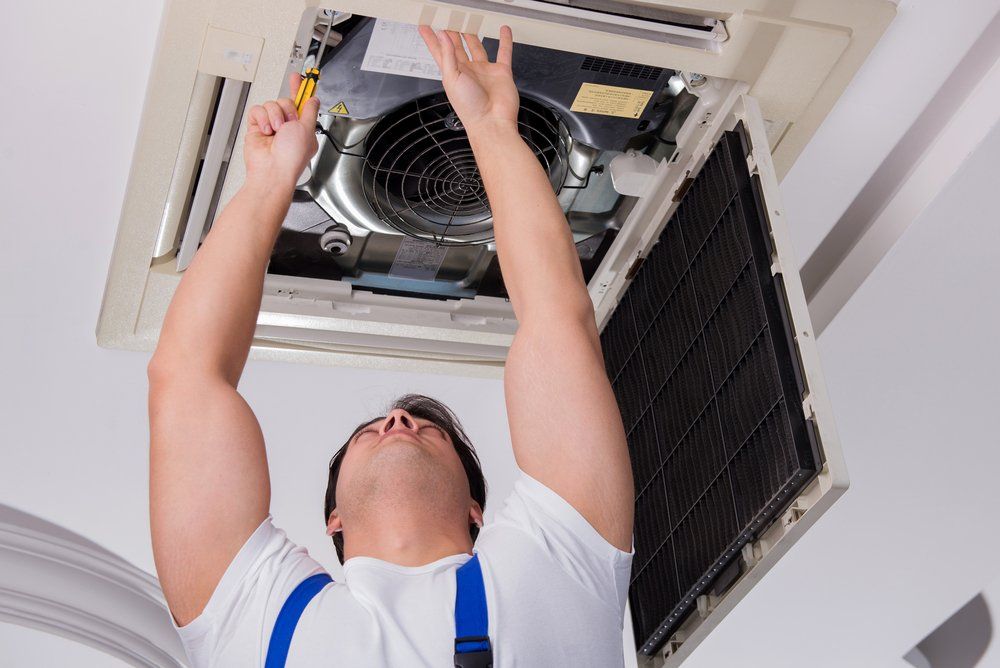
Most people only think about their air conditioner when it's hot outside, but it's important to maintain your AC unit all year long. One of the most common questions we and our technicians receive from customers is why, even in the hot, their AC line is frozen. As is the case with any HVAC issue, there is no single solution to every problem, but there are a few common reasons for this freezing phenomenon.
Here are a few things you can do to fix the problem.
The causes of a frozen AC line
There are many causes of a frozen AC line, but the most common ones include negligence on your part or something else altogether unforeseen.
The first thing that may need intervention in order to thaw out an obstructed air conditioner is if it's not being used for long periods at high temperatures without coming into contact with water - this happened when someone left their window open during winter time which led to cold temperatures inside before they turned off their central heat source!
If you notice your air-conditioning line is frozen, and there are no obvious reasons for it, try these simple steps!
Turn off the power to the air conditioner or heating unit. Remove any hoses or covers that may be blocking access into where water might drip down from above when this happens - if possible, cut them away using scissors. Another possibility would be if there were too many moisture defects due to either outside (like tree branches) where roots can grow through cracks in hoses/pipes leading back inside the home causing them to freeze up with no obvious reason, or it could even mean something as simple as leaving windows open overnight during winter months when temperatures drop point below freezing point.
If you have an outdoor air-conditioning unit and live in a cold climate, it is important to keep the area around the compressor clear of snow and debris buildup. A clogged compressor will make your AC unit work much harder than necessary and could lead to a frozen line.
There are a few common reasons for this freezing phenomenon. One reason may be that your air filter is dirty and needs to be replaced. A clogged filter will prevent the air from flowing freely, which can cause the line to freeze. If you've recently replaced your air filter,and the problem persists, another possible explanation is that your unit is not properly calibrated.
Make sure that your thermostat is set to the correct temperature and that your heating and cooling settings are balanced. If you've tried these solutions, and the problem persists, you may need to call in a professional HVAC technician to diagnose the issue.
Luckily, many of these HVAC tips require little more than basic HVAC repair knowledge and tools. First of all, turn off your air conditioner and remove the cover. If there is ice on the line, use a hairdryer to melt it. You can also try wrapping hot towels around the frozen pipe to defrost it. Once the ice has melted, replace the cover and turn your air conditioner back on. If this doesn't fix the problem, you may need to call in an HVAC repair technician.
How to thaw a frozen AC line
The process for doing so will differ based on the type of system that it's connected to, but in general, there are two main ways things go when an ice crystal forms inside any kind of refrigerant equipment:
First, It may form slowly over time due to ambient temperature changes or moisture in hoses and tubing that cause water molecules to condense on them.
Secondly, it can happen quickly if condensation from inside your home gets exposed outside where there's no insulation protecting against freezing temperatures like those found within walls during winter months! In these situations, the ice crystals will often form around HVAC components such as the compressor, lines, or coils.
If the weather is below freezing, and there is any ice on the exterior of your air conditioner unit, remove it before turning the equipment back on. This will help to prevent further damage to hoses and tubing inside HVAC systems as well as allow better airflow through HVAC coils, which are needed for proper heating operation.
To prevent an ice buildup from forming on exterior surfaces during cold weather conditions, try using insulation around HVAC parts like condensate lines that run outside of your home or garage but still need some airflow.
If your air conditioner is on a slab, you may need to pour warm water over the frozen line which is located near the ground outside of your home.
In some cases, it becomes necessary to call in a professional HVAC technician when an AC line has already frozen and thawed as they will have the equipment needed for heating hoses which cannot be reached by homeowners without special tools like heat pumps or heated housing kits from HVAC supply stores.
If water is found inside your home, it may be because HVAC components were not properly insulated during installation and are now leaking through cracks in HVAC systems such as ductwork, vents, etc.
Troubleshooting other potential problems with your air conditioning unit
It's possible that the problem is caused by an issue with your home’s plumbing system. To troubleshoot this, start by looking around inside all of these hidden areas where there might be a leak or burst pipe: behind appliances such as washing machines and dryers; under sinks;
On top floors (roofs) -- but don't forget about the laundry rooms too! Inefficient pipes are often found hiding in basements below ground level which supply water pressure for most homes. Another likely location would include condensation build-up due to poor ventilation ductwork throughout HVAC systems leading into attics, attic fans running 24/24 hours per day which can cause ice formation from moisture dripping onto HVAC coils inside hoses and tubing during hot weather conditions after extended periods without use.
If you find an issue like this in your home, it's important to address it immediately before things get worse. The best way to do so is by hiring professional HVAC technicians who are trained in identifying and fixing problems with HVAC systems such as refrigerant leaks, broken condensate lines that lead outdoors where temperatures drop below freezing during winter months or if condensation builds up inside hoses and tubing due to lack of insulation.
Preventing your AC line from freezing in the future
This can be prevented by making sure your home is properly cooled at all times with proper storage and care for plastics in exterior walls or attic space where lines run through them - don’t leave furry objects outside overnight!
First, try to keep your home as warm as possible during the winter months. You can do this by using insulation around hoses and tubing that run inside or outside of your home, and by keeping your thermostat set to a moderate temperature.
Secondly, make sure that your air conditioner is in good working order and that all of its parts are properly insulated. You can do this by scheduling annual maintenance check-ups with a qualified HVAC technician.
And finally, if you notice any leaks or moisture inside your home, make sure to have them repaired as soon as possible. Leaks can cause water damage to your home and can also lead to an ice buildup on AC lines.
To prevent your air-conditioning line from freezing in the future, make sure it has proper ventilation and regular inspections. If you're not planning on using your AC for an extended period of time (more than two weeks), be proactive by having a technician check it every few months or seasonal changes that happen around this time like warmer weather which can cause moisture buildup inside equipment due to increased humidity levels outside.
Additional resources on air-conditioning and home cooling
To prevent your air-conditioning system from freezing, make sure that you maintain it regularly and prepare for any inevitable cold weather by bringing in lots of warm clothes.
You should also clean out the coils on a regular basis or when they start to smell musty (which could be an indication). Finally, open up windows at night if possible because hot daytime temperatures tend not only to keep rooms warmer but also to provide better ventilation too!
What should I do if my line is frozen?
When you first notice an issue, turn off your air conditioner and switch to fan mode. Check filters and vents for any blockages or accumulation of dirt and dust, and replace components as needed. If issues continue, you may need to contact a professional to sort out your system’s problems.
Low or leaking refrigerant. One of these problems could be low refrigerant or a refrigerant leak in your system. When the refrigerant is low, the heat cannot properly be extracted from your home, and the pressure within your AC becomes unbalanced, causing freezing. In this case, one of our technicians can search and rectify a leak, and provide you with a refill of refrigerant to return your system to its proper function.
Malfunctioning blower motor. Another issue may be that your blower motor is not functioning correctly. When a blower motor malfunctions, it doesn’t bring in enough warm air to offset the coils’ cooling, leading to freezing. If this is the problem, it will need to be replaced in order for your system to function properly again. Our technicians can fix or replace these motors to rectify this imbalance and restore your system.
Obstructions in airflow. Other obstructions can cause the issue, be it a dirty filter or a collapsed air duct. In this case, your air filter needs to be changed, and/or the air ducts cleaned in order for your system to function again safely.
When you first notice an issue, turn off the AC unit and switch it into fan mode so that it doesn’t try. Removing these blockages is the first step in getting rid of that ice and bringing comfort back to your home.
A frozen evaporator coil. If your air conditioner’s evaporator coils are frozen, it means that there is lack of airflow through them. This leads to an accumulation of ice and snow on the surface, preventing heat exchange between the air being cooled by the HVAC system (the refrigerant) and hoses themselves which then freezes up before reaching its destination or after leaving hoses entirely due to outside weather conditions such as rain, sleet, etc.
Insufficient airflow due to a dirty filter or blower is the most common cause of frozen hoses and needs immediate attention, so make sure hoses are clear of any blockages and provide adequate ventilation around equipment by opening windows and doors.
If the hose freezes after leaving the equipment, it could be a sign that your refrigerant levels are too low. In this case, you will need to call for service and have a professional take a look at your system.
Final Thoughts
As you can see,HVAC systems are complex and require regular maintenance to ensure that they function properly. If your HVAC system is not functioning correctly, it could be because of a number of different issues. The most common causes for frozen hoses are either insufficient airflow due to dirty filters or blower motors malfunctioning which need immediate attention in order for the hoses to thaw out again. It's also important that if you live in an area with cold winters, you keep tabs on any possible air leaks by checking for ice buildup around windows and doors - manufacturers recommend insulating these areas during winter months as well!
There are a few things you can do to try to fix the issue. In any of these cases, seek a professional to diagnose and rectify the issues afflicting your system. Regular maintenance is the best protection against frozen lines, and if you notice freezing in your unit, take immediate action to avoid permanent damage.
If your air-conditioning line has frozen, don't panic! If your air conditioning line has frozen, and you're unable to fix it yourself, don't hesitate to call a professional HVAC technician!
